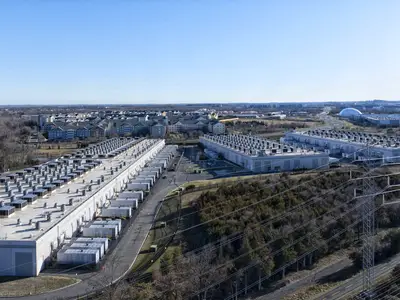Analyzing energy systems and technologies and the related economic and environmental impacts
Assessing the scale and scope of energy markets and environmental policy requires the use of economy-wide models that can trace the rich network of linkages among consumer, producer, and government decisions through our economy’s many markets.
The RTI Center for Applied Economics and Strategy (CAES) develops and implements a variety of models to study energy and environmental problems. These models range from linear input-output models to estimate regional economic impacts, to inter-temporally dynamic global computable general equilibrium models.

Economy-Wide Modeling
Economy-wide models are powerful tools to assess the economic and environmental impacts of changes in resource abundance, technology, and policy. Our teams study the impact of:
oil prices on the adoption of new transportation technologies;
environmental policy on the distribution of economic and health benefits;
and climate policy on the value of fossil fuel infrastructure.

Energy Efficiency
Our work in energy efficiency ranges from assessing the economic impact of government research and development for advanced technologies to offering demand-side management (DSM) support for electric utilities. We conduct retrospective and prospective evaluations of energy efficiency investments for clients such as the U.S. Department of Energy/EEL, National Institute of Standards and Technology, and state governments.
We provide a full range of DSM services—including standing up DSM departments, developing DSM strategies and programs, and implementing and evaluating DSM initiatives—to electric utilities around the world. RTI’s DSM Portal integrates web-based tools and secure DSM warehouse databases to support DSM program design and implementation; our efforts facilitate the broad spectrum of DSM-related services that our clients desire.

Electricity Sector
We support policy makers in understanding the economic and environmental consequences of pollution control efforts and technological change. RTI’s team of economists and data scientists simulate electricity generation, pollution, and prices from the United States and global electricity grids to assess energy and environmental policies. Our team has deep expertise in the data resources required to fully characterize the engineering configurations, emissions attributes, and different costs of generating units on the electricity grid.
For example, we developed the Micro-level Economic and Environmental Detail of Electricity (MEEDE) dataset and integrated it into our ARTIMAS® economy-wide model. The RTI ADAGE® economy-wide model also carries technology-rich representations of electricity generation and capital stocks.
Our team also has experience working with sector-specific models such as our RTI ALPSS electricity sector model and user interface system and the open-source Regional Energy Deployment System model from the National Renewable Energy Laboratory. We have linked our economy-wide models with the previously mentioned sector-specific models to simulate richer interactions between the technologically detailed power sector and the broader economy.

Alternative Fuels Analysis
We perform technical analyses of potential vehicle technology, explore alternative renewable and alternative fuel pathways, and study transportation demand options for reducing greenhouse gas (GHG) emissions in the transportation sector. This includes enhancing models of the agricultural, forest, and land-use sectors and linking those models to energy and economy-wide models. We have conducted studies to assess the market potential for renewable natural gas in addition to conducting simulation modeling of oil and gas markets.
RTI has been conducting analyses in support of Renewable Fuel Standard since 2008. In collaboration with various academic and research institutions, we provide agricultural and forestry sector modeling support to analyze the impacts of large-scale biofuel production on U.S. agriculture, forestry, and land use.
Related Projects
Exploring How Expanding Electricity Access in Kenya Impacts Jobs and Incomes
Read More about Exploring How Expanding Electricity Access in Kenya Impacts Jobs and Incomes









